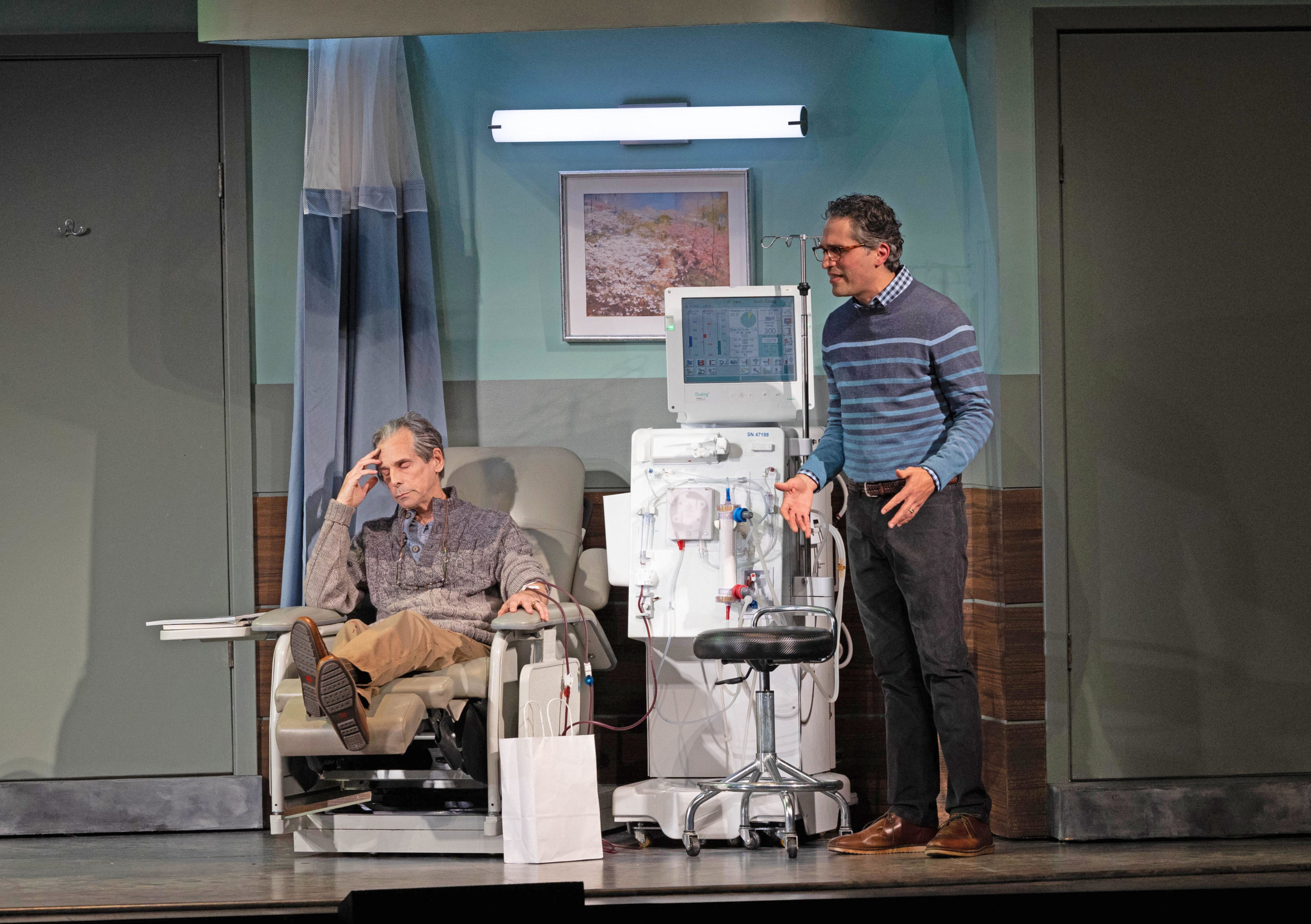SALT LAKE CITY – What is the subject matter of a show called Ass? Who is the ass? Does it show an ass? Something to do with donkeys? While there were no nudity or animals, writer Ellen Simon’s world premiere does press viewers to assess which character is the Ass. The short answer is, perhaps all of them.

Ass invites the audience into the intimacy of familial relations that have fizzled, that are strained, and that are somewhat dysfunctional. The greatest works can take an ordinary scenario and give the audience a glimpse of themselves, remind them that of the shared human condition, and that perhaps their woes are not so unique. But, Simon only managed to portray the mundanity of life without building a vested interest in the characters and their fate. This Ass is flat.
Ass is principally about a father and son relationship. Will returns to his childhood apartment in New York City to see his father, a famous sculptor. Jule, the cantankerous egoist sculptor lives with his significantly younger ninth wife Tory and is in failing health. Jule is undergoing regular dialysis treatments and needs a kidney transplant to restore his quality of life. Will is broke after making a poor investment, and his spritely wife is struggling to conceive and needs expensive fertility treatments. The story follows the dance of the two men clearly desperately needing something that the other has to give but not willing to ask. As grandiosity meets mediocrity, Jule exhibits his greatness and the importance of his work while Will is fighting for his father’s approval and recognition.

Directed by Karen Azenberg, Ass had a saccharine start to the first act. The opening dialogue was unnatural, kitschy, and appropriate for a sitcom. From Ben Cherry’s heavy footed goofball portrayal of Will to Elizabeth Ramos’s over-eager and over-the-top Ana, there was a lack of sincerity for a play that should be a believable and intimate portrayal of a real-life family. Chemistry and timing were lacking, and the jokes were obvious and still failed to land.
The character of Tory (played by Laura J. Hall) was altogether confusing throughout the show, as she varied from blatantly sinister (in her threats to leave Jules) to attempted exaggerated silliness (in scenes such as when she was closing the hospital curtain mischievously while Jules and Will were having a discussion). The humor throughout felt forced and ill-timed and distracted from my ability to empathize with and connect to the characters.

While the shortcomings were a plenty, I do not blame the actors, as Simon’s script was weak, and perhaps Azenberg’s directorial choices exacerbated the weaknesses, rather than corrected them. To quote the play “life is so boring without tension,” and so was the first act.
Fortunately, the second act brought a less forced and more raw dialogue. I have seen Cherry perform at Pioneer before and have found him outstanding. Parts of the second act gave him an opportunity to showcase his talent and abandon the fluff. For example, in the scene that Cherry as Will describes riding the coattails of his father and using his father’s name to attain the only validation he has ever known, Cherry is impressive. Scenes such as this had the support of the script for the actors to give a genuine performance. As the writer Ellen Simon’s father is a distinguished playwright, I found the scenes with autobiographical implications, such as Wills turmoil, were written best and with the most sincerity.

While I struggled to connect with most of the characters, Jule was written and acted splendidly. T. Ryder Smith gave a fabulously commanding and pompous air to Jule. Smith’s performance was actually funny because he was not painfully hitting obvious humor again and again, but developing the absurdity of the character in such a way that it was comical. As Jule, Smith was believable, dynamic, consistent, and entertaining. I especially enjoyed the aloof and bombastic dialect Smith cultivated for the character. Smith was also convincing as a man who was losing his abilities when work is the most important and static part of his life. Additionally, Smith and Vince McGill as Ray (the dialysis nurse) had plausible conversations that were the most emotionally affecting, particularly when Ray tells Jule of his late son. I enjoyed the ironic bond between Jule and Ray as Jule fails to connect with his own son. But, regrettably, the shining moments of the second act were not enough to save the show.
My favorite thing about Pioneer Theatre Company is that they choose to do shows that other local companies do not perform, and they always have a superior quality in acting. I enjoy when they perform classics, and I have seen some tremendous contemporary plays at Pioneer. But Ass does not join the ranks of these productions. Nonetheless, I am pleased that we have a local company that takes the gamble and shows world premieres despite the occasional losing hand. If my criticism does not deter you from seeing Ass and you care to make your own opinion (as you should), note that the play does contain strong language and is not appropriate for young audiences.
[box]The Pioneer Theatre Company production of Ass plays Mondays through Thursdays at 7 PM, Fridays and Saturdays at 7:30 PM, and Saturdays at 2 PM through November 6 at the Simmons Pioneer Memorial Theatre (300 South 1400 East, Salt Lake City). Tickets are $33-55. For more information, visit pioneertheatre.org.[/box]

